Beer and Kidney Disease
If you're living with kidney disease, you may wonder about the relationship between beer and your condition. It's possible to enjoy a drink in moderation, but it's vital to understand how alcohol interacts with medications and affects your body.
Drinking beer increases urine output, which can alter blood levels of critical minerals like calcium, sodium, phosphorus, and potassium. If you've got liver issues too, it's best to avoid drinking altogether.
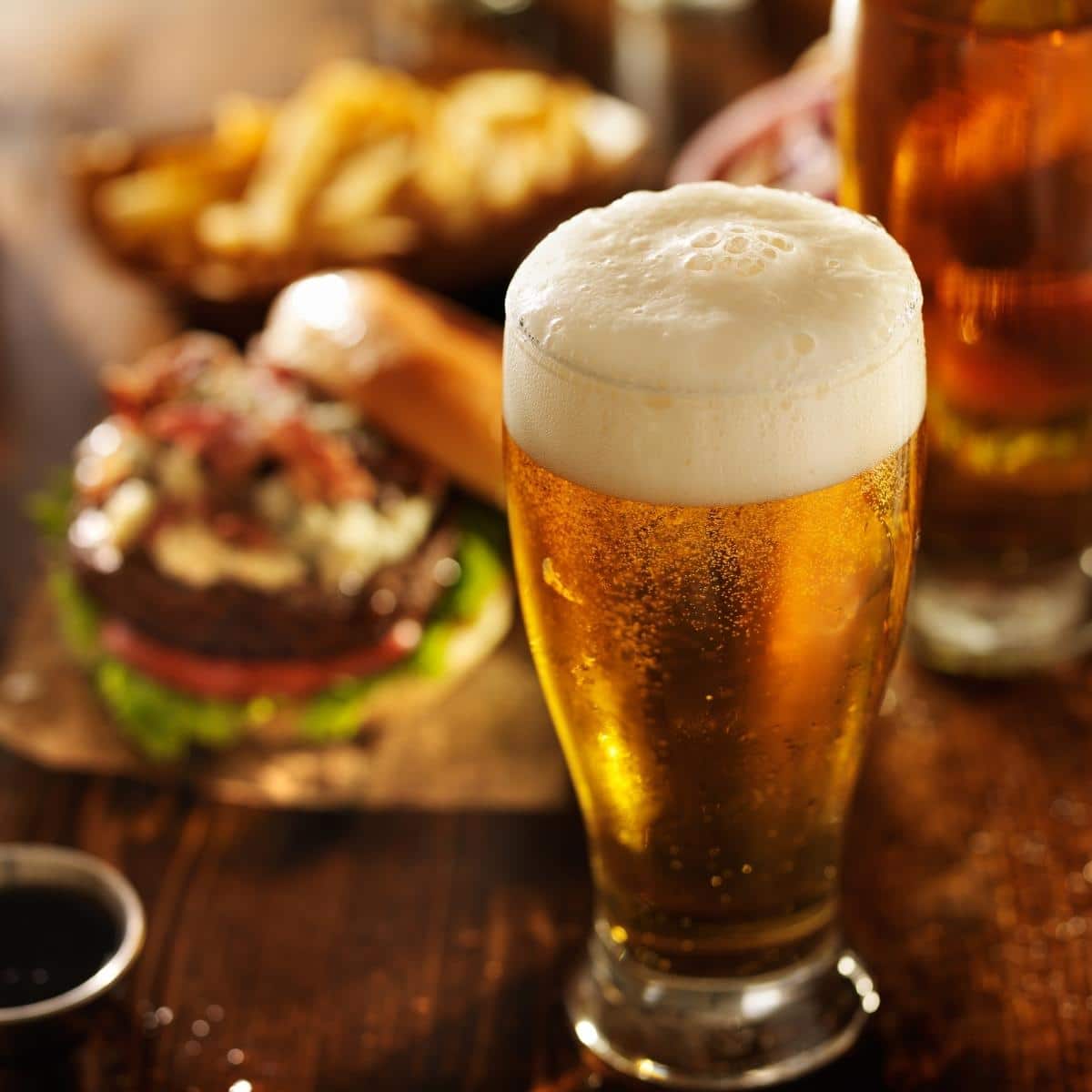
For those on dialysis, remember that the liquid in your pint counts towards your daily fluid allowance. Plus, don't forget that alcohol is dense with calories; these add up quickly and could affect your diet plan.
In this article, we'll delve deeper into these considerations so you can make informed decisions about enjoying a brew while maintaining normal kidney function.
Jump to:
- Key Takeaways
- Understanding the Relationship Between Beer and Kidney Disease
- The Role of Moderation in Alcohol Consumption for Kidney Patients
- Beer and High Blood Pressure: The Link to Kidney Damage
- How Alcohol Interacts with Medications in Kidney Disease
- The Impact of Alcohol on Urination and Blood Concentration Levels
- Considering Liver Health in Relation to Alcohol and Kidney Disease
- Fluid Intake and Dialysis: The Role of Alcohol
- Caloric Considerations of Alcohol in a Kidney Disease Diet
- Learning to Enjoy Beer Responsibly with Kidney Disease
- Frequently Asked Questions
- Moderate Beer Consumption Can Be Okay With Kidney Disease
Key Takeaways
- Beer increases urine output and can alter blood levels of calcium, sodium, phosphorus, and potassium.
- Excessive beer consumption can increase the risk of developing chronic kidney disease.
- Moderate beer consumption is generally okay for individuals with kidney disease.
- It is important to consult with a doctor about medication compatibility before consuming alcohol.
For More Recipes and Ideas --->> Get Your Free Meals and Recipes That Are Perfect for Pre-Dialysis Diets, Pre-Dialysis with Diabetes, or Dialysis Diets.
Understanding the Relationship Between Beer and Kidney Disease
You might be wondering about the link between your favorite brew and kidney disease, and it's vital to understand that while moderate alcohol consumption can be okay, you need to keep an eye on your fluid intake, medication compatibility, and the potential impact on your blood nutrient levels.
When it comes to beer consumption, moderation is key. According to the National Kidney Foundation, that means up to one drink per day for women and older people and two drinks per day for men. One drink is defined as 12 ounces of beer or wine cooler, 5 ounces of wine, or 1.5 ounces of hard liquor. So you can have a glass of wine with your dinner.
Beer can affect the normal function of kidneys in various ways. Alcohol increases urination through the effect that it has on your anti-diuretic hormone. Heavy drinking could also disrupt the balance of sodium, phosphorus, and potassium in your blood - essential nutrients that kidneys help regulate.
The harmful effects of alcohol over-consumption on kidney health are real; overindulging may cause significant damage, including increasing the risk of developing chronic kidney disease (CKD).
Also important is how beer impacts fluid intake in those with kidney disease; remember any liquid counts towards your daily fluid allowance if you're on dialysis.
So enjoy that cold brew responsibly, as long as you keep these factors in mind!
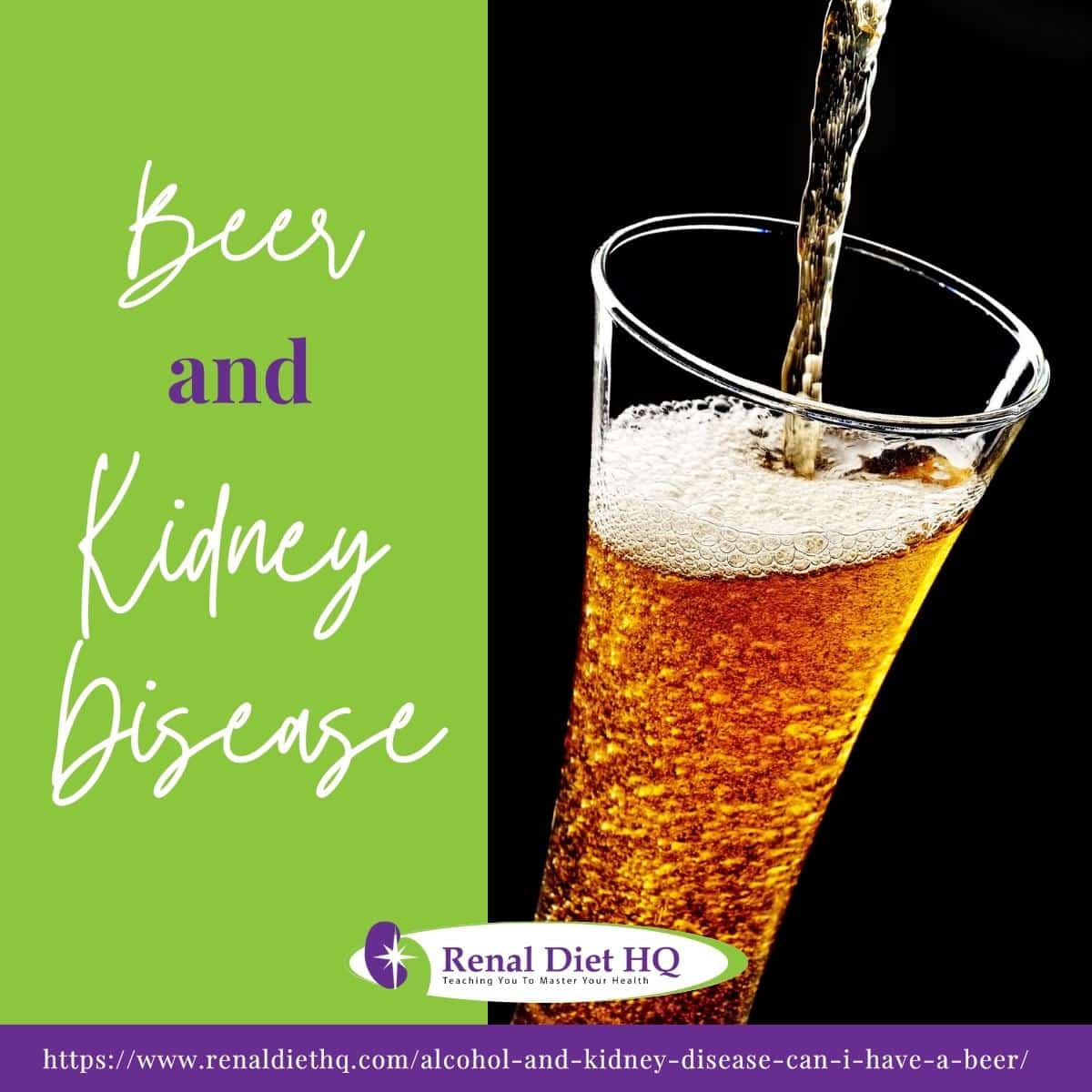
The Role of Moderation in Alcohol Consumption for Kidney Patients
Remember that it's crucial to strike a balance when indulging in your favorite spirits if you're dealing with renal issues. While alcohol restrictions for kidney disease patients aren't always extensive, moderation is key. For men, this generally means a maximum of two drinks per day, but for women and older people, a single drink suffices.
Alcohol is mostly processed through the liver, so as long as you don't have liver damage you can drink in moderation. If you have been a long time drinker and have any sort of liver problems or disease, you should stop drinking to stop any further damage from occurring.
Frequent alcohol consumption poses serious risks. Not only can it interact negatively with some medications but also leads to enhanced urination which disrupts the balance of essential elements like calcium, sodium, phosphorus, and potassium in your system. This imbalance can be damaging to someone already experiencing kidney disease.
However, alcohol intake isn't all doom and gloom for people with kidney disease. It could even offer potential benefits such as reducing risk of heart disease which may coexist with kidney ailments. It's all about managing alcohol wisely - keeping track of fluid intake from alcoholic beverages towards your daily allowance especially if you're on dialysis.
Education and awareness on alcohol and kidney health are critical tools in navigating this complex relationship successfully. Knowing how much is too much helps keep kidneys functioning optimally while still allowing you the pleasure of an occasional beer or wine. With knowledge comes informed choices; so arm yourself well!
Beer and High Blood Pressure: The Link to Kidney Damage
One of the ways that beer can contribute to high systolic blood pressure is through its alcohol content. Alcohol can be a vasodilator, which means that it can cause the blood vessels to widen and can increase the rate of blood flow and decrease blood pressure. However, when consumed in excess, alcohol can have the opposite effect and cause the blood vessels to constrict, which can increase blood pressure.
In addition to its alcohol content, beer also contributes to your fluid intake, which can contribute to high blood pressure.
This effect can be particularly important in renal patients as they are already predisposed to high blood pressure. Sodium is an essential mineral that helps regulate the balance of fluid in the body, but when you have kidney disease, your body may struggle to control sodium levels. This can contribute to high blood pressure in addition to fluid overload and fluid buildup around your heart and your lungs, which subsequently leads to shortness of breath.
High blood pressure can cause a lot of kidney issues. When blood pressure is consistently too high, it can cause damage to kidney blood vessels and impair their ability to function properly. Over time, this can lead to CKD, which can also progress to end-stage renal disease (ESRD) or renal failure if left untreated.
There are several steps that you can take to minimize the risk of high blood pressure and renal dysfunction associated with beer consumption. First and foremost, it's important to drink in moderation and avoid binge drinking, which can cause rapid increases in blood pressure and other negative health outcomes.
Additionally, you can make dietary changes to reduce your overall sodium intake, such as cutting back on processed foods and increasing your intake of fresh fruits and vegetables.
Positive smoking status can also lead to higher blood pressure. Changing your smoking habits can help you lower your blood pressure even further and avoid further damage to your kidneys caused by hypertension.
Other lifestyle changes that can help reduce the risk of high blood pressure and help maintain normal baseline kidney function include regular exercise, stress management, frequent blood pressure measurements, and maintaining a healthy body mass. Managing other risk factors, such as diabetes or high cholesterol, can also help keep your kidneys healthy as well.
How Alcohol Interacts with Medications in Kidney Disease
Navigating the tricky terrain of medication and alcohol interaction isn't easy, especially when you're dealing with renal challenges. It's crucial to grasp that alcohol can potentially interact with your medications and can even cause a decline in kidney function.
Alcohol in moderation might be permissible, but even small quantities can cause significant changes when combined with certain drugs. These interactions may result in amplified side effects or diminished effectiveness of your medicine.
Furthermore, alcohol influences electrolyte levels, which is already a delicate issue for those with kidney disease. Over-consumption may lead to harmful alterations in levels of calcium, sodium, phosphorus, and potassium.
Moreover, you need to consider that alcoholic beverages contribute to both fluid intake and calorie consumption. This dual role becomes critical if you're on dialysis or watching your weight as part of managing kidney disease. Remember that the liquid from beer counts towards your fluid allowance and calories from alcohol quickly add up.
To avoid potential complications from combining alcohol with medications while managing kidney disease requires constant attention and vigilance. Always consult your doctor about any concerns regarding medication compatibility before indulging in an occasional drink; it's better to err on the side of caution when navigating this complex landscape.

The Impact of Alcohol on Urination and Blood Concentration Levels
Alcohol's impact on hydration is significant; it suppresses an important hormone called anti-diuretic hormone that typically limits urination. This leads to increased urinary frequency which can exacerbate dehydration, especially harmful for those with kidney disease.
The same drink could also disrupt key electrolytes, as alcohol affects levels of calcium, sodium, phosphorus, and potassium in the blood. These are crucial for various bodily functions including heart rhythm and nerve function. Its interference can cause serious health complications if not properly managed.
So next time you raise a glass, think about how it might affect your kidneys' delicate equilibrium - from hydration status to mineral concentrations within your bloodstream.
Considering Liver Health in Relation to Alcohol and Kidney Disease
Liver health is closely related to alcohol consumption, as alcohol is processed by the liver. When you consume alcohol, it is absorbed into your bloodstream and then metabolized by the liver. Excessive alcohol consumption can cause damage to the liver, leading to various liver diseases such as fatty liver disease, alcoholic hepatitis, and alcoholic cirrhosis.
In addition to liver disease, excessive amounts of alcohol can also increase the risk of renal disease. Chronic alcohol consumption can also increase the risk of developing conditions such as glomerulonephritis, which is a type of kidney disease that causes inflammation and damage to the glomeruli, the tiny filters in the kidneys that filter waste and excess fluids from the blood.
High frequency of alcohol consumption can also cause changes in blood pressure, dehydration, and electrolyte disturbances, which can all damage your health even further.
Fluid Intake and Dialysis: The Role of Alcohol
When you're on dialysis, managing fluid intake becomes crucial and alcohol's role in this can be quite tricky. Hydration management is a vital part of living with kidney disease, and consuming alcohol can complicate matters.
| Alcohol Impact | Explanation |
| Electrolyte Balance | High drinking frequency can disrupt your electrolyte balance, which can be particularly dangerous if you're on dialysis. |
| Renal Function | Drinking too much worsens kidney damage by increasing the risk of other kidney damaging health issues like high blood pressure. |
Remember that liquid from alcoholic beverages counts toward your daily fluid allowance - so it's essential to factor this into your hydration management strategy. Keep close tabs on how alcohol impacts your electrolyte balance as well.
For those navigating kidney disease, moderation is key when it comes to alcohol consumption. Be sure to consult with a healthcare professional about potential interactions between alcohol and any medications you're taking.
Caloric Considerations of Alcohol in a Kidney Disease Diet
Moving on from the role of alcohol in fluid balance during dialysis, let's delve deeper into another important aspect of your kidney disease diet: caloric intake.
Alcohol, including regular beer, does not provide much nutritional value, but it still contains calories that contribute to your overall daily intake. Depending on your needs, that might or might not fit your recommended daily calorie intake.
If you're managing kidney disease, it's crucial to understand this because maintaining a healthy weight and calorie control influences the progression of your condition. This is where nutrition education becomes vital.
The dietary restrictions imposed by kidney disease require careful attention be paid not only to what you eat but also what you drink. Remember, one standard drink of beer amounts to about 150 calories. Consuming too much could lead to unwanted weight gain or disrupt your meal plan due to its high caloric content.
However, light drinking following established alcohol guidelines can allow for an occasional indulgence without straying from necessary dietary limitations. A key factor here is understanding how these additional calories fit within your individual nutritional needs and fluid balance.
So while enjoying a cold beer now and then might be permissible, always consider the caloric implications as part of managing your overall health with kidney disease.
Learning to Enjoy Beer Responsibly with Kidney Disease
Navigating the world of alcoholic beverages while managing your health situation can be tricky, but it's not impossible. When it comes to beer and kidney disease, understanding potential risks and the nutritional value of your drink is crucial.
Beer, like any alcoholic beverage, contributes to your total calorie intake which could lead to weight gain and further stress on your kidneys. Moderation is key when enjoying beer with kidney disease. Keep in mind the following guidelines: For women or older people, one drink per day is the maximum, while up to two drinks daily may be allowed for men. But don't forget that these are upper limits - less is always better.
Living with kidney disease often involves lifestyle adjustments. One such adjustment might be reducing alcohol consumption or finding alternative beverage options such as non-alcoholic beers which have improved in taste over recent years or simple water infusions flavored with fresh fruits or herbs.
Always keep in mind that every sip of beer counts towards your fluid allowance if you're on dialysis. Above all else, prioritize communication with your healthcare provider before making any changes to understand how alcohol interacts with your specific medications and condition.
Frequently Asked Questions
While beer's composition and alcohol metabolism may have some effects on your body, drinking beer doesn't directly improve kidney dysfunction. Some previous studies suggest that moderate alcohol consumption could potentially offer kidney protection, but this is still debated.
While the hydration impact of beer might seem beneficial, it can actually cause imbalances in essential electrolytes. Also, excessive alcohol intake can contribute to hypertension, which can cause damage to your kidneys.
Always consult with a kidney doctor before making any changes to your diet or lifestyle.
Analyzing beer ingredients, it's hard to find a type that's entirely safe for kidney disease. Moderation is key in slowing disease progression. Alcohol-free beer options might be worth considering.
Remember, even non-alcoholic drinks contribute to your fluid levels. It's crucial to make dietary adjustments and choose kidney-friendly drinks. Always consult with your doctor before making any changes to your diet or medication regimen, especially when including alcohol.
Generally speaking, individuals with kidney disease and those undergoing dialysis may need to limit their alcohol intake depending on their overall health and medical history. Alcohol can have negative effects on the kidneys and can also interact with some medications used to treat kidney disease.
Additionally, individuals undergoing dialysis may have restrictions on their fluid intake, and alcohol intake should be counted as part of your total fluid intake. It is important to follow the advice of your healthcare team regarding the effects of alcohol consumption while on dialysis.
While some studies have suggest that moderate beer consumption can be associated with a reduced risk of developing kidney stones, additional studies are still needed to prove the protective effects of alcohol when it comes to kidney stones.
There might actually be an inverse association relationship between alcohol consumption and kidney stone formation, as the dehydration caused by alcohol can actually increase the risk of kidney stones by increasing the concentration of substances in the urine. Therefore, it is important to consume beer only in moderation.
Additionally, it is important to maintain a healthy diet that is low in salt and animal protein to reduce the risk of kidney stone formation.
If you are concerned about your risk of developing kidney stones, you should talk to your doctor about ways to reduce your risk.
Long-term beer consumption may accelerate kidney disease progression if you exceed the alcohol limit. Alcohol can disrupt your kidney health, change blood levels of key minerals, and interfere with certain medications.
It's crucial to make lifestyle changes that respect your condition, including moderate drinking habits. Remember to count the liquid in beer towards your daily fluid allowance if you're on dialysis. Always consult with your doctor about potential risks before consuming any alcoholic beverages.
Yes, there are some medications that are more likely to interact negatively with beer in individuals with kidney disease:
1. Diuretics: Diuretics are commonly used to treat high blood pressure and fluid retention in kidney disease. Beer contains alcohol, and one of the direct effects of alcohol is acting as a diuretic, so combining the two can lead to excessive diuresis and dehydration. It can also lower blood pressure significantly.
2. ACE inhibitors and ARBs: These blood pressure medications are commonly used in kidney disease. Combining alcohol with these drugs can lead to nausea, vomiting, drowsiness, fainting, and even heart problems.
3. Metformin: This diabetes medication can cause a buildup of lactic acid in the body. Alcohol can further increase lactic acid levels, potentially leading to lactic acidosis, a serious condition.
Moderate Beer Consumption Can Be Okay With Kidney Disease
You can still enjoy beer with kidney disease, but moderation is key. Always consult your doctor about how alcohol might interact with your medications.
Remember, drinking increases urination and affects blood concentration levels. If you have liver damage or are on dialysis, be extra cautious.
And don't forget that alcohol adds to your daily calorie count. So enjoy responsibly and keep a close eye on your health!



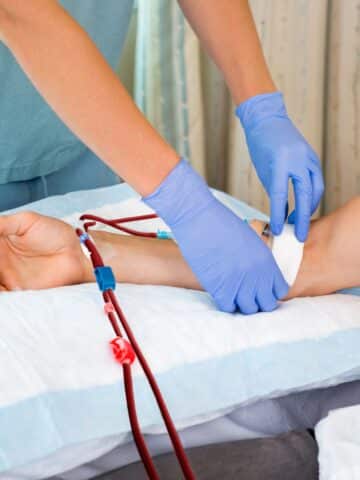



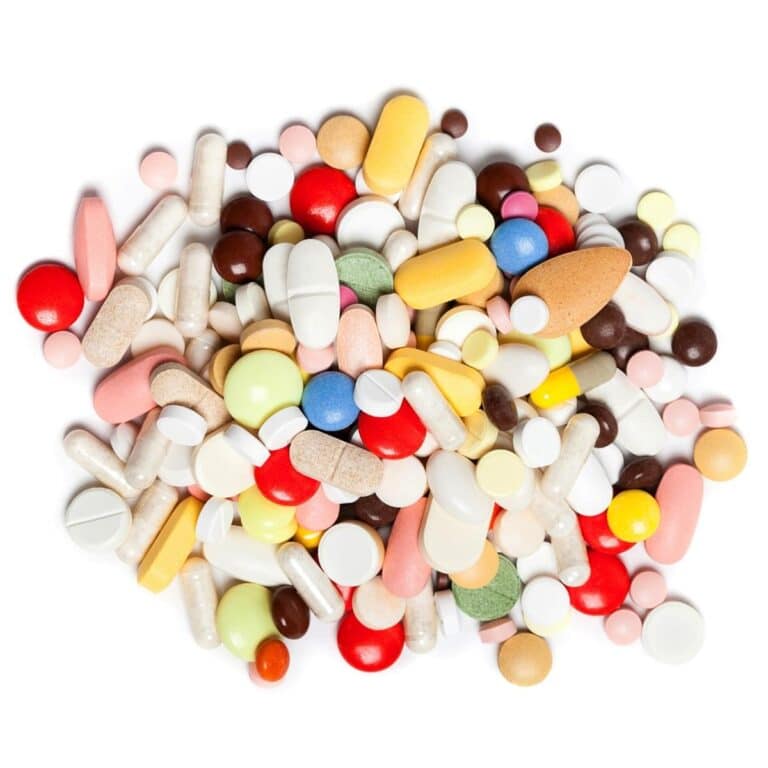






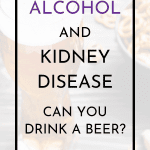










On a ckd diet.if you can have 12ozs beer is light beer better than regular beer.